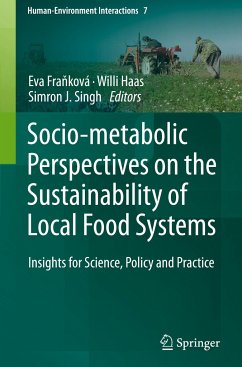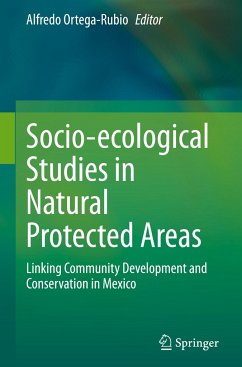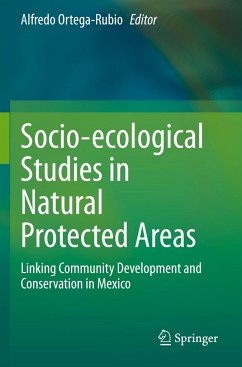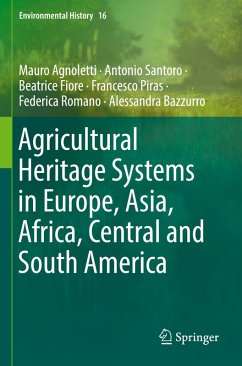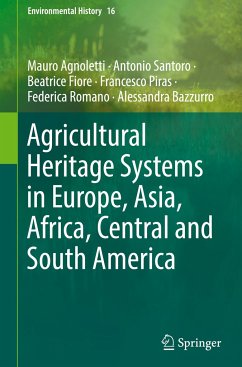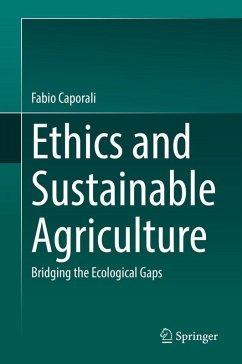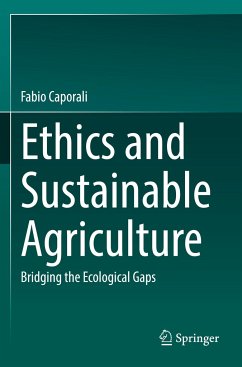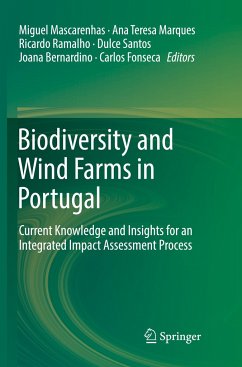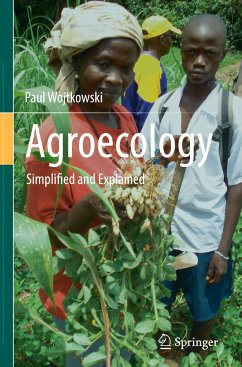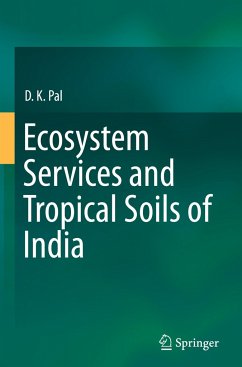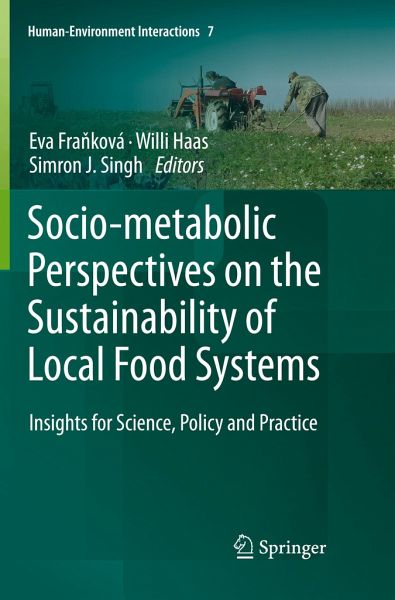
Socio-Metabolic Perspectives on the Sustainability of Local Food Systems
Insights for Science, Policy and Practice
Herausgegeben: Franková, Eva; Haas, Willi; Singh, Simron J.
Versandkostenfrei!
Versandfertig in 6-10 Tagen
83,99 €
inkl. MwSt.

PAYBACK Punkte
42 °P sammeln!
This book delves into diverse local food systems and critically assesses their ecological and societal benefits and trade-offs, their limits and opportunities for improving sustainability of food production, and framework conditions which either hinder or promote their development.More and more people with gradually meat heavier diets will demand growth in food production, whilst our increasingly industrialized and globalized agri-food system has already caused serious sustainability problems in the past. This calls for a change in the way we produce, distribute and consume food. A re-emerging...
This book delves into diverse local food systems and critically assesses their ecological and societal benefits and trade-offs, their limits and opportunities for improving sustainability of food production, and framework conditions which either hinder or promote their development.
More and more people with gradually meat heavier diets will demand growth in food production, whilst our increasingly industrialized and globalized agri-food system has already caused serious sustainability problems in the past. This calls for a change in the way we produce, distribute and consume food. A re-emerging debate on food security and food sovereignty seems to support this quest. But what are the promising alternatives to mainstream developments?
Such a discussion regarding sustainability of local food systems requires a sound systemic understanding and thus invites a socio-metabolic reading of local cases by analyzing the nexus between material and energy flows as well asland andtime use. This approach is needed to complement the so far mostly qualitatively-based local food studies. Applying socio-metabolic approaches to local food systems fosters a better understanding of promises and pitfalls for sustainable pathways in the future.
More and more people with gradually meat heavier diets will demand growth in food production, whilst our increasingly industrialized and globalized agri-food system has already caused serious sustainability problems in the past. This calls for a change in the way we produce, distribute and consume food. A re-emerging debate on food security and food sovereignty seems to support this quest. But what are the promising alternatives to mainstream developments?
Such a discussion regarding sustainability of local food systems requires a sound systemic understanding and thus invites a socio-metabolic reading of local cases by analyzing the nexus between material and energy flows as well asland andtime use. This approach is needed to complement the so far mostly qualitatively-based local food studies. Applying socio-metabolic approaches to local food systems fosters a better understanding of promises and pitfalls for sustainable pathways in the future.



